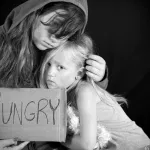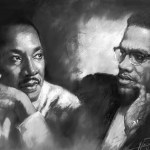Enkutatash: Let Our Treasures Be Troubled No More
Written by Teodrose Fikre, September 10, 2017
The world is a troubled treasure, as light blesses us, darkness is not too far around the corner–life truly is a duality. Too often, our focus on stress robs us of the abundance life gives us. I write this in light of a holiday Ethiopians are celebrating called Enkutatash which is our New Year. Tomorrow, over 90,000,000 Ethiopians back home and millions more throughout the globe will celebrate a new beginning. Yet those of us in America pause as we rejoice for tomorrow is also the anniversary of 9/11. We are thus bracketed by tears and smiles; the image of twin towers burning seared in our minds as we simultaneously take part in lighting chibo to mark a new year.
Tears and smiles; we Ethiopians know this duality intimately. Our nation survived for more than three thousand years by virtue of witnessing our share of adversity and happiness. Through it all, we brave on and remain thankful. We learned a long time ago to count our blessings no matter the circumstances. It is this treasure of resiliency that enabled us to survive where countless others perished. This inheritance of fortitude steeled my spine when I was going through my darkest moments; this same mettle has kept Ethiopians throughout the ages from breaking when beset by crucibles.
I do not write this to elevate my fellow countrymen as if we are a special people above others. Hardship is not unique to Ethiopians nor is our resiliency a trait that only we possess. We are all tethered together by shared experiences. For the longest time, I thought this shared experience and the common language of mankind was love. But recent turbulence and a wisdom earned through ennui has led me to a profound revelation. From kings to paupers, pain is a connective tissue that bonds all irrespective of the endless ways we keep splintering ourselves as a people. A wise king once noted that much woe is found when wisdom is earned; yet with woe also comes enlightenment as we choose it. Woe loosens egos from our hearts and gives us the ability to be empathetic towards our fellow humans.
If we stop fearing woe and running from our pains, maybe we can actually start to see the change in this world that we all want desperately in our souls. If we are to find redemption, we will only find it when we stop letting the fear of falling and the anxiety of being seen as a failure make us indifferent towards those who struggle as we worship those who flourish by stepping on others. We have been conditioned to believe that success is about self-attainment; the need to serve our egos has overridden the virtue of serving others. Yet, the more we nourish our egos the more we starve our purpose.
Humans are communal by our very predisposition–we are not meant to be islands onto ourselves. This is why we keep taking part in one protest and cause after another even as too many turn these causes into a conduits for self promotion. Thoreau was prescient; for every one that hacks at the root of injustice, there are a thousand who keep hacking at its branches and getting nothing for it. If we only pause, we would realize that the way to solve the iniquities of this world is to be kind to each other instead of letting the powerful agitate us to hate one another.
One of the reasons I love Ethiopia so much is because of an incident that occurred in Addis Abeba when I was six years old. I remember this event with full clarity as if it happened last week. I used to walk freely throughout my neighborhood when I was a child. One day, I ventured out a lot further than my usual expeditions and ended up in the lesser parts parts of the city. I walked by a gojo (hut) made out of mud and happened upon a middle aged lady. When she saw me, she treated me like her prodigal son had returned home and lavished me with utmost kindness.
Instead of ignoring me, she welcomed me in her home and fed me. I grew up privileged in all honesty; I lived in a section of Bole reserved for upper-middle class Ethiopians. It was the lady in the gojo who was the lesser in terms of possessions but she gave freely the little that she had to a diminutive traveler–her kindness made her wealthy. This one memory has been etched into my heart for an eternity; the kindness of my parents and random people throughout my life has been the source of my resiliency. Giving is limitless and returns back greatly; taking is finite and only leads to misery.
This is a lesson we should really reflect on during this occasion of Enkutatash. What kept us thriving as a nation for 3,000 years–even during our times of hardship–has always been our giving nature. We are a nation built on community; we break bread together, we share burdens collectively, we cry with friends and family and we experience our joys with many. Every aspect of Ethiopian culture is woven within the fabric of togetherness. I pray for my birth land and for the whole world to be more about community and less about individuality. The more we share of each other and walk together, the more we bend the arc of history towards justice.
A long time ago, Queen Makeda (Sheba) traveled to Israel intent on giving a bounty of treasures to King Solomon and to pay respects to the wisest of kings. When she arrived in Israel, King Solomon took an interest in Makeda and turned his wisdom into cunning in order to ensnare Makeda. The night before, Solomon told Makeda that she would be indebted to him if she stole his treasure. She agreed to this demand as Queen Makeda who had more fortunes than Solomon. She did not realize that the cup of water that Solomon placed in her bedroom was the treasure he was deviously referring to.
A sip of his water opened the door for King Solomon to take Queen Makeda’s most precious treasure. This is why Ethiopians celebrate Enkutatash–enku means treasure and tatash means difficulty. Queen Makeda’s tata (trouble) began when she gained a treasure (water). Her kindness and trust was repaid with cunning which led to yet more enku (treasure) and tata (trouble). After laying down with King Solomon, Makeda had a child named Milinik–from injustice a treasure was given. This is the duality of life that is common to all of us; as we gain distress, we also inherit blessings. It is from this saga that Ethiopians have a connection to Judah; Ethiopia was betrothed biblical treasures but also took on many burdens.
This story of Queen Makeda and King Solomon is really an allegory of life that everyone experiences. Live long enough and others will take our treasures and give us difficulties. When these difficulties come, the choices we make determine if we will find treasures or if we will be mired in troubles. Queen Makeda went on to rule with great wisdom and the Axum empire became a nation among nations thanks in large part to her stewardship. As a new year comes for Ethiopians and as Americans mourn 9/11, may we take the time to reflect on past pains but not be moored in it. Tears we shed but in the end may we find happiness through thankfulness.
Through despots, strife, famines and hardship, Ethiopians continue to smile and refuse to break before difficulties. For my fellow Ethiopians, I hope that we protect the culture our parents passed on to us. Adera is not just a saying, it is our responsibility to pass on a legacy of kindness and resiliency to our children. For my adopted home America and for anyone else reading this throughout the world, do not let troubles rob us of our treasures. Where the world gives us tata, give back the enku of kindness–love is the only way we can truly make a difference. #Enkutatash
Let gold be the flowers you walk in, may the sky not have a single cloud to honor your existence, God gave you thirteen months of Sunshine to bless you, may your troubles rbe lesser than your treasures.
If you appreciate this write up and you too believe that the treasure that can loosen trouble for this world is love, share this article on social media using #Enkutatash
Check out this amazing video of Kinetbeth doing eskista for Ethiopia’s New Year. Check out @KinetBeth on Twitter and her website at www.kinetbeth.com
Check out this Ghion Cast where I discuss how love can overcome hardship and deliver justice.
To Ethiopia, lijochish be selam, desta ena fiker yenoru #MelkamAddisAmet
Teodrose Fikre
Originally from Ethiopia with roots to Atse Tewodros II, Teodrose is a former community organizer whose writing was incorporated into Barack Obama's South Carolina primary victory speech in 2008. He pivoted away from politics and decided to stand for collective justice after experiencing the reality of the forgotten masses. His writing defies conventional wisdom and challenges readers to look outside the constraints of labels and ideologies that serve to splinter the people. Teodrose uses his pen to give a voice to the voiceless and to speak truth to power.
Latest posts by Teodrose Fikre (see all)
- The Song of Marcus Samuelsson and the Soundtracks of Our Lives - October 28, 2017
- My Open Letter to Congress: cc Senators Warner, Kaine and Congressman Connolly - October 27, 2017
- Clarion Call Ghion: Imperative Message to Our Readers and Social Media Public - October 25, 2017
















Leave a Reply
1 Comment on "Enkutatash: Let Our Treasures Be Troubled No More"
Lovely! I really enjoyed your insight into the relationship between Solomon and Makeda, between pain and blessing.
0
0